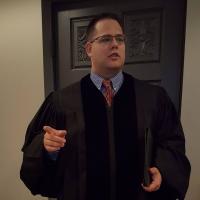


Good morning!
This may kind-of tie in to my last entry, "Ministry in the 21st Century," but I think it also stands for itself:
In the 21st century, we're arguably more connected to each other and the world than we ever have been before. I think that, in a most ways, its made us better people. I think anyone could say that, thanks to the connected world we live in, we're all exposed to things, culture, lifestyles and... anything else for that matter, than our ancestors were.
Think about it for a second: Sixty years ago, it was quite common to get your news from the local paper, or the Wall Street Journal or New York Times -- but it was largely sources of media that were local. Local communities have their own biases, concerns, culture and informational interest, and they often vary -- particularly, say, from big city to small town. The matters of interest for someone in Los Angeles may very well be quite different from those in Mt. Airy, North Carolina.
Fast forward to today -- people now have an almost infinite choice of media, and how and when they chose to take it in. By giving everyone an equal shot at getting what they have to say out for the world to read, I think its safe to say that it's caused a lot of us to re-evaluate our own beliefs, biases, preconceptions and judgements of others. Personally, I think that's a good thing.
However, has it also more isolated us in other ways, and also reinforced other negative biases? For example, could the "equal world of the media" now present in cyberspace give rise to feelings of animosity and more hardened judgementalism, in that "Oh, because of modern media, that lifestyle is now spreading, and becoming accepted"? Could this also be responsible for a resurgence of things like fringe-left/fringe-right political groups, catering to those who don't like the idea of change in the modern world?
One of my favorite lines I've ever heard to remind me of modernity, I first heard from Star Trek: "Challenge your preconceptions -- or they will challenge you." I think it's a good rule to live by -- in fact, I think it should be a part of the modern Golden Rule (i.e., such that can be gleaned from Matthew 7:12, or the Wiccan Rede, as examples). I think these two phrases go together quite well, even when you consider points such as moral relativism. Everyone has a unique personal code, and it often falls in line with their chosen or born-into community, be it one thing or another... and I often find myself wondering if our increased connectedness [while, largely a good thing, I think] may not also lead to an inner frustration for others, who may view modernity as a decay of their own percieved system of values.
What do you think?
Monsignor Samuel Cummings is Chancellor of the Universal Life Church of Michigan.
This was cross-posted to the ULC Online Forum